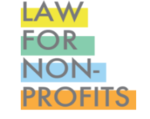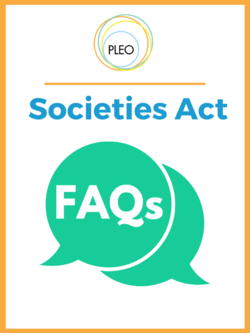Societies Act FAQs
Revision as of 19:47, 2 September 2016 by Nate Russell (talk | contribs)
|
|
This page from JP Boyd on Family Law and others highlighted in orange explain trial procedure and litigation in BC family law. They are under editorial review to provide more thorough, current, and practical guidance. Since 2020, procedures, forms, and laws have changed significantly. While gross inaccuracies have been corrected, some details may still be outdated. These pages were not included in the 2024 print edition. |
|
|
Download the full Wikibook in PDF. |
|
|
Download the full Wikibook in EPUB (learn more). |
|
|
Buy this Wikibook and get it by mail. |
|
|
Customize: take what you need, leave the rest (learn more). |
The information in Societies Act FAQs is intended for British Columbian non-profit organizations who seek to understand the requirements of the new Societies Act, SBC 2015, c. 18, and their responsibilities for compliance and transition under this new legislation.
Contents
FAQs
- Introduction to Societies Act FAQs
- Transition
- Constitution
- Schedule B Bylaws
- New Model Bylaws
- Membership
- Meetings Of Members
- Proceedings At Meetings
- Directors And Officers
- Proceedings Of Directors
- Duties Of Officers
- Seal
- Borrowing
- Auditor
- Notice To Members
- Record-Keeping
- Member-Funded Societies
- Miscellaneous
About these FAQs
- Societies Act FAQs is prepared by Law for Non Profits as a support for non-profit organizations in British Columbia undergoing transition to BC's new Societies Act, SBC 2015, c. 18, following its proclamation later this year.
- Learn more about Clicklaw Wikibooks.
About Law For Non Profits
Law for Non Profits Law School is an initiative of the Pacific Legal Education and Outreach Society (PLEO).

- Website: www.lawfornonprofits.ca
| © Copyright 2016-2024, Pacific Legal Education and Outreach Society. |
| © Copyright 2016-2024, Pacific Legal Education and Outreach Society. |
